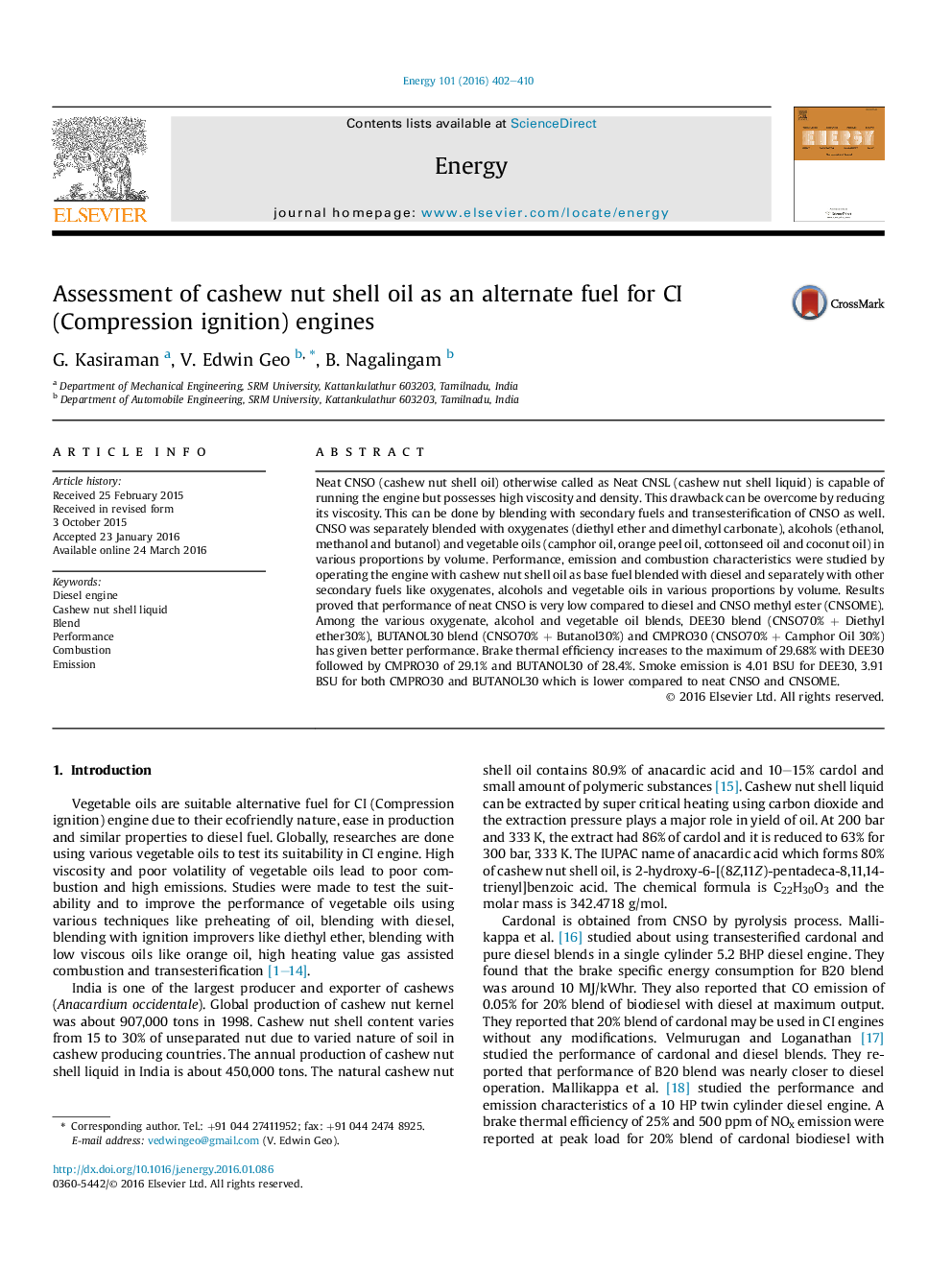| Article ID | Journal | Published Year | Pages | File Type |
|---|---|---|---|---|
| 1731041 | Energy | 2016 | 9 Pages |
•This detailed study provides a reliable and insight database of new biofuel, cashew nut shell liquid.•The methods studied for improvement can be easily adopted by anyone, even in rural areas.•Blending substances are selected from biobase which are locally available in rural areas also.•This study identifies blends that can contribute to all-round improvement of CI engine performance.
Neat CNSO (cashew nut shell oil) otherwise called as Neat CNSL (cashew nut shell liquid) is capable of running the engine but possesses high viscosity and density. This drawback can be overcome by reducing its viscosity. This can be done by blending with secondary fuels and transesterification of CNSO as well. CNSO was separately blended with oxygenates (diethyl ether and dimethyl carbonate), alcohols (ethanol, methanol and butanol) and vegetable oils (camphor oil, orange peel oil, cottonseed oil and coconut oil) in various proportions by volume. Performance, emission and combustion characteristics were studied by operating the engine with cashew nut shell oil as base fuel blended with diesel and separately with other secondary fuels like oxygenates, alcohols and vegetable oils in various proportions by volume. Results proved that performance of neat CNSO is very low compared to diesel and CNSO methyl ester (CNSOME). Among the various oxygenate, alcohol and vegetable oil blends, DEE30 blend (CNSO70% + Diethyl ether30%), BUTANOL30 blend (CNSO70% + Butanol30%) and CMPRO30 (CNSO70% + Camphor Oil 30%) has given better performance. Brake thermal efficiency increases to the maximum of 29.68% with DEE30 followed by CMPRO30 of 29.1% and BUTANOL30 of 28.4%. Smoke emission is 4.01 BSU for DEE30, 3.91 BSU for both CMPRO30 and BUTANOL30 which is lower compared to neat CNSO and CNSOME.
